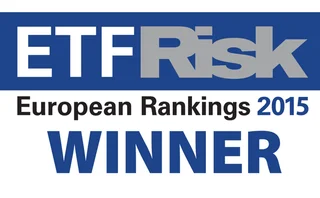
US investors’ use of equity derivatives grows
Greenwich Associates says that US institutional investors are increasing their use of equity derivatives overall, though their use of some complex products is waning.
John Colon, a consultant at Connecticut-based Greenwich Associates said the growing use of equity derivatives across various strategies suggests a rising number of institutions are using the instruments as substitutes for cash equity trading.
Investors are opting for derivatives because of the ease with which the instruments help them gain leverage and anonymity, alongside beneficial tax treatment, Greenwich said.
However, US institutional investors’ use of some complex products, such as variance swaps and fund-linked and index-based products, has dropped by 20% during the past year. In contrast, European institutional investors have increased their use of tailored OTC, securitised, and hybrid derivatives by 15% over the same period.
This growth has been largely driven off the back of the popularity of structured products with the European retail and high-net worth (HNW) clients of dealers in Europe. According to Greenwich, only 5% of US dealers on-sell structured products to their retail and HNW client base.
Only users who have a paid subscription or are part of a corporate subscription are able to print or copy content.
To access these options, along with all other subscription benefits, please contact info@risk.net or view our subscription options here: http://subscriptions.risk.net/subscribe
You are currently unable to print this content. Please contact info@risk.net to find out more.
You are currently unable to copy this content. Please contact info@risk.net to find out more.
Copyright Infopro Digital Limited. All rights reserved.
As outlined in our terms and conditions, https://www.infopro-digital.com/terms-and-conditions/subscriptions/ (point 2.4), printing is limited to a single copy.
If you would like to purchase additional rights please email info@risk.net
Copyright Infopro Digital Limited. All rights reserved.
You may share this content using our article tools. As outlined in our terms and conditions, https://www.infopro-digital.com/terms-and-conditions/subscriptions/ (clause 2.4), an Authorised User may only make one copy of the materials for their own personal use. You must also comply with the restrictions in clause 2.5.
If you would like to purchase additional rights please email info@risk.net
More on Exchange-traded products
Realising the China opportunity
Webinar: HKEX
One size does not fit all: Smart beta explained
Sponsored feature: WisdomTree Europe
ETF Risk European Rankings 2015: ETF trading platform for institutional investors
Sponsored feature: Tradeweb
ETFs – Transforming the investment landscape in Asia
Sponsored survey analysis: Deutsche Asset & Wealth Management
Flood of oil ETF investors reshaping market, analysts say
'Massive' inflows cushioned oil price drop in early 2015, but could easily reverse
Currency-hedged ETF surge prompts hedging concerns
Eurozone QE programme prompts wave of investor interest
Currency-hedged ETF inflows boom
Investor interest sparks race to construct new products
Shanghai ETF option volatility spikes on China market fears
A crackdown on margin financing strengthens bearish sentiment







